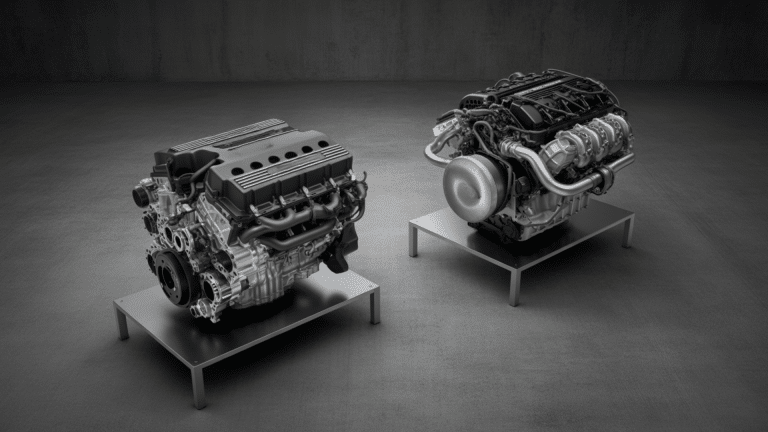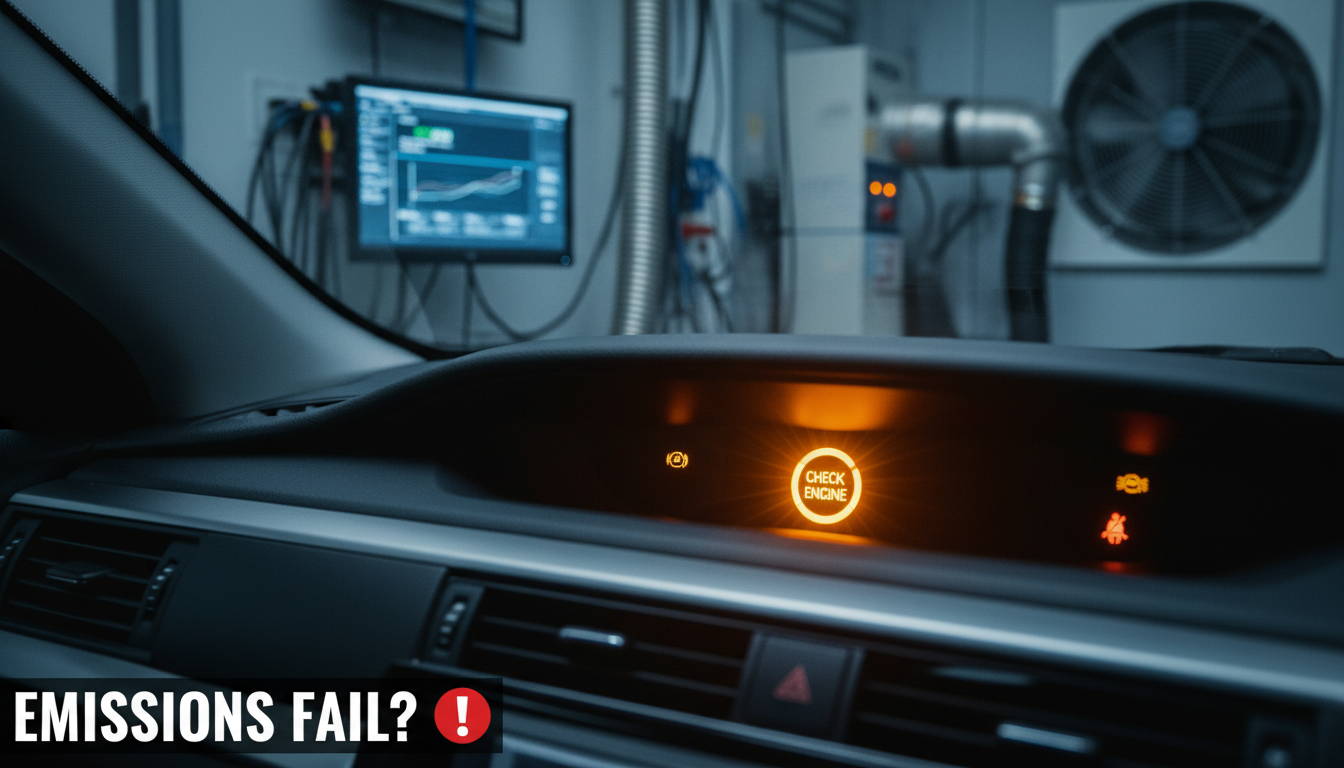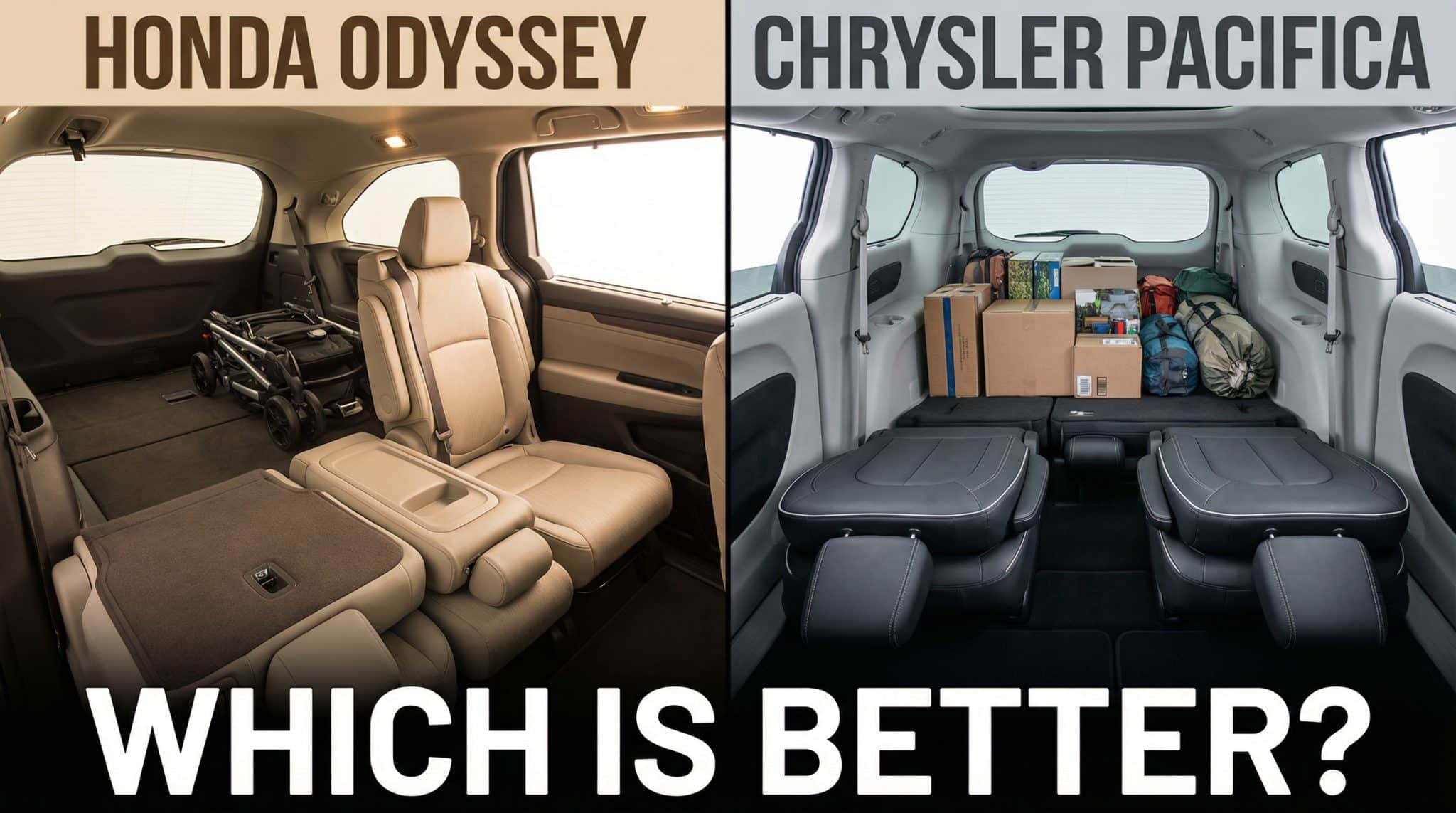Choosing the right engine for your RAM 2500 can feel like a big job. You’re about to spend a lot of money, so you want to make sure you get it right.
There are a few strong engine options, but it can be tricky to figure out which one best suits your needs.
In this article, I’ll discuss each engine’s power, its pulling capacity, and how it works in real life.
I’ll also talk about how much each engine costs and how long it usually lasts.
I’ve worked with heavy-duty trucks for years. I know what matters to people who use them every day. You don’t need sales talk; you need clear facts.
If you’re hauling tools or pulling a trailer, you’ll need to determine which engine is the best match for your needs. Let’s get started.
Importance of Engine Selection
The engine you pick changes how your whole truck feels and works. It decides how much weight you can tow, how often you’ll stop for gas, and how much you’ll pay to keep it running well.
If you choose the wrong one, it can end up costing you thousands over the years.
You might feel like your truck lacks enough power, or you might pay extra for features you never use.
People who make smart choices take time to learn first. They think about what they really need and don’t get fooled by big numbers or fancy terms.
Before choosing, consider how you’ll actually use your truck. Driving to work every day requires different power than pulling a trailer on weekends.
Building houses or hauling tools requires more strength and toughness than just driving for fun.
RAM 2500 Engine Options
RAM offers two distinct powertrains for the 2500 series. Each serves different purposes, and both have proven track records. The following are the options based on torque, power, and other technical details:
6.4L HEMI V8 Gasoline Engine
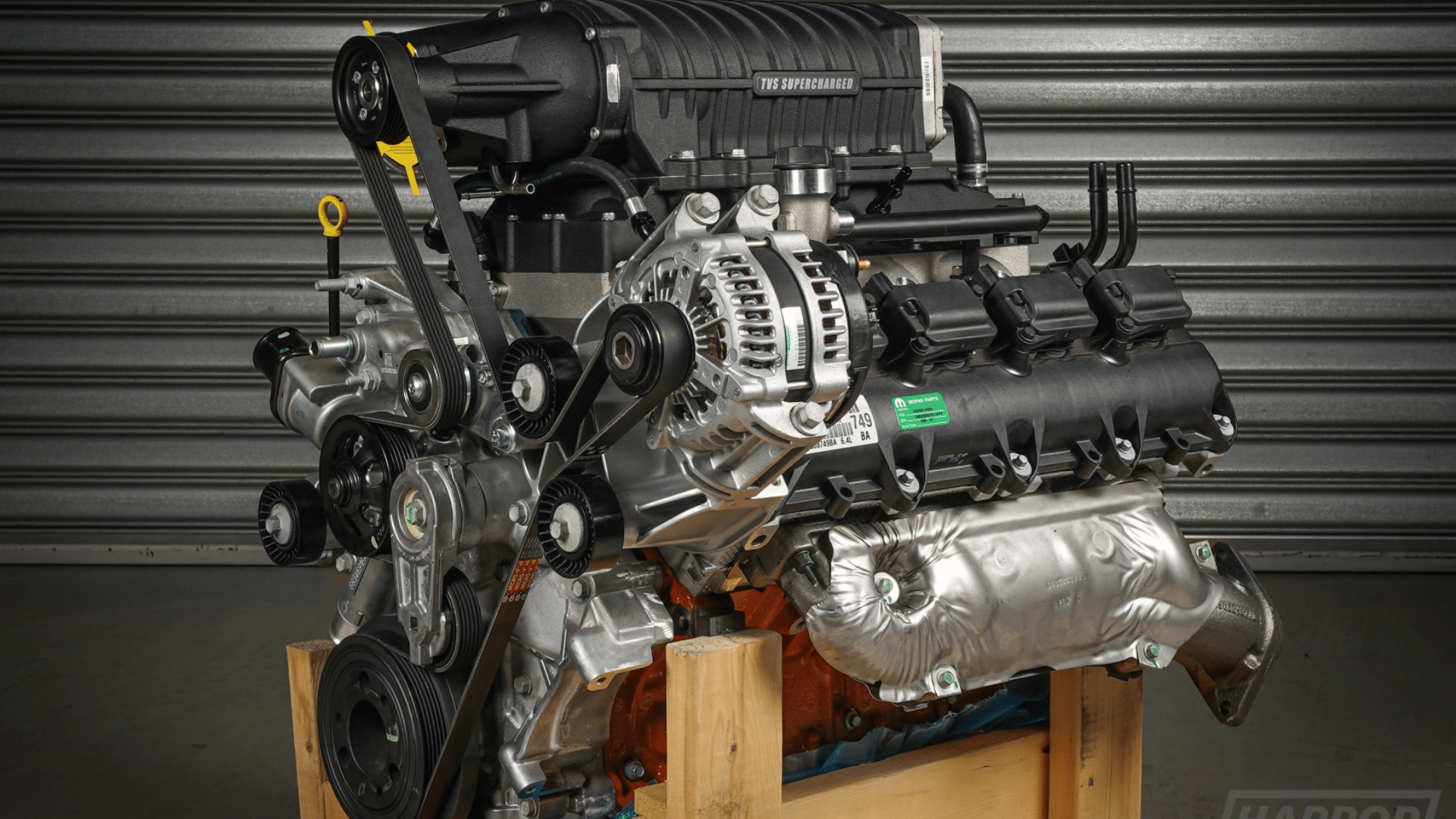
The following clearly shows what the RAM 2500’s HEMI V8 engine offers. It’s a strong, well-known gas engine with a long track record.
Many truck owners like it because it’s powerful but not overly complicated.
| Feature | Details |
|---|---|
| Horsepower | 410 hp |
| Torque | 429 lb-ft |
| Fuel Type | Regular gasoline |
| Fuel Economy (City) | Around 14 mpg |
| Fuel Economy (Highway) | Around 19 mpg |
| Towing Capacity | Up to 17,540 pounds |
| Engine Type | Naturally aspirated (no turbo) |
| Maintenance | Lower than turbo engines; easy to repair |
| Throttle Response | Quick and smooth |
The HEMI V8 is a great choice if you want solid power without extra engine tech that might be expensive to fix later.
It’s strong enough for towing, simple enough to maintain, and common enough that parts won’t be hard to find.
6.7L Turbo Diesel I6 Engine
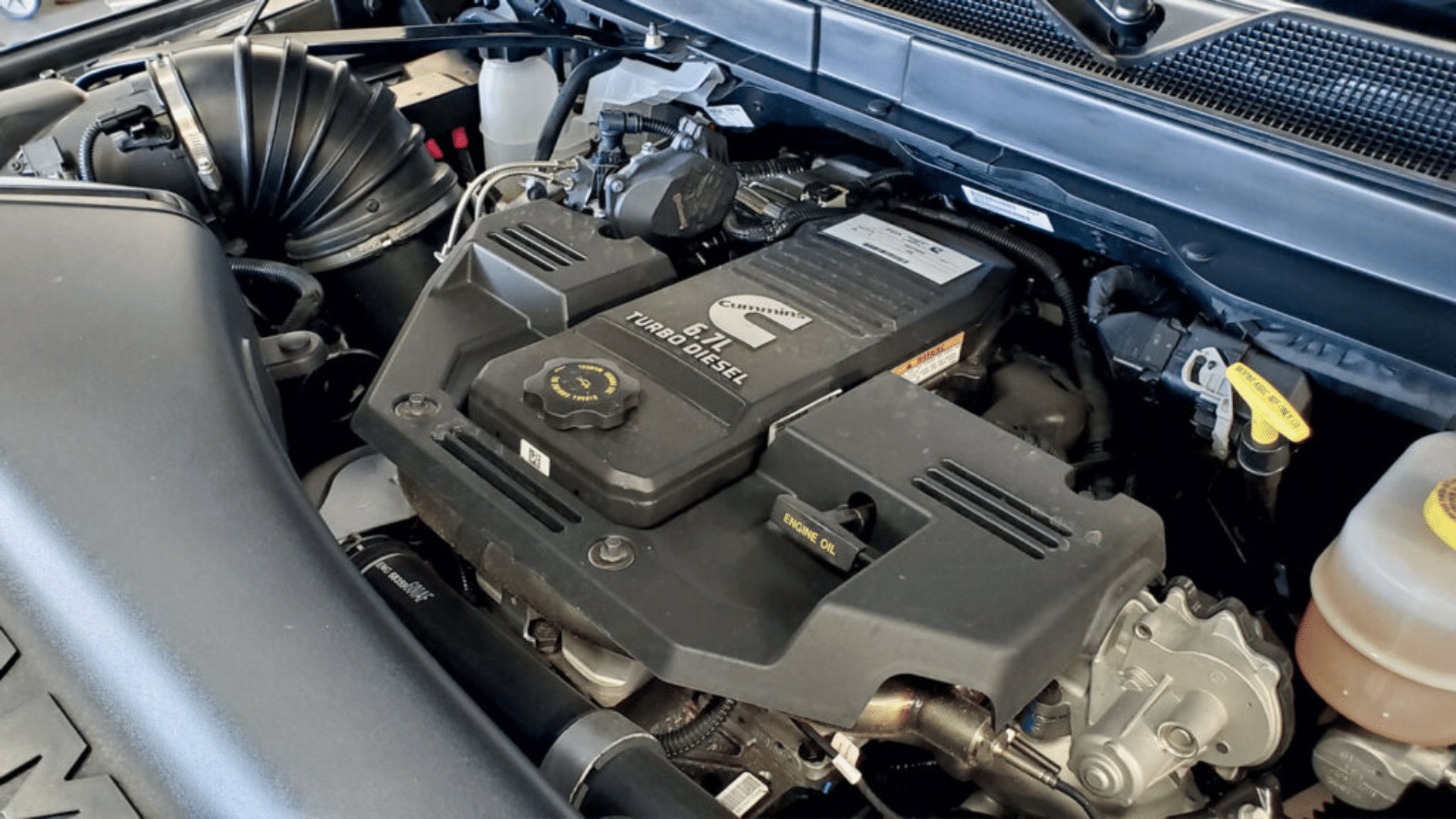
The 6.7L Cummins Diesel is built for serious work. It gives the RAM 2500 a big boost in towing ability and fuel efficiency.
While it requires more care and maintenance than a gas engine, it pays off if you haul heavy loads often.
| Feature | Details |
|---|---|
| Horsepower | 370 hp |
| Torque | 850 lb-ft |
| Fuel Type | Diesel |
| Fuel Economy (City) | Around 17 mpg |
| Fuel Economy (Highway) | Around 23 mpg |
| Towing Capacity | Up to 19,680 pounds |
| Engine Strength | Excellent low-end torque |
| Maintenance Needs | More complex (DEF, filters) |
| Throttle Feel | Smooth and strong, especially under load |
| Emissions Gear | DEF system and particulate filters |
The Cummins diesel is ideal for heavy-duty users. When properly maintained, it pulls harder, sips less fuel, and lasts a long time.
Just be ready to keep track of its added systems, like DEF fluid and filters. If you tow often, it’s likely worth it.
Pros and Cons of Each RAM 2500 Engine Option
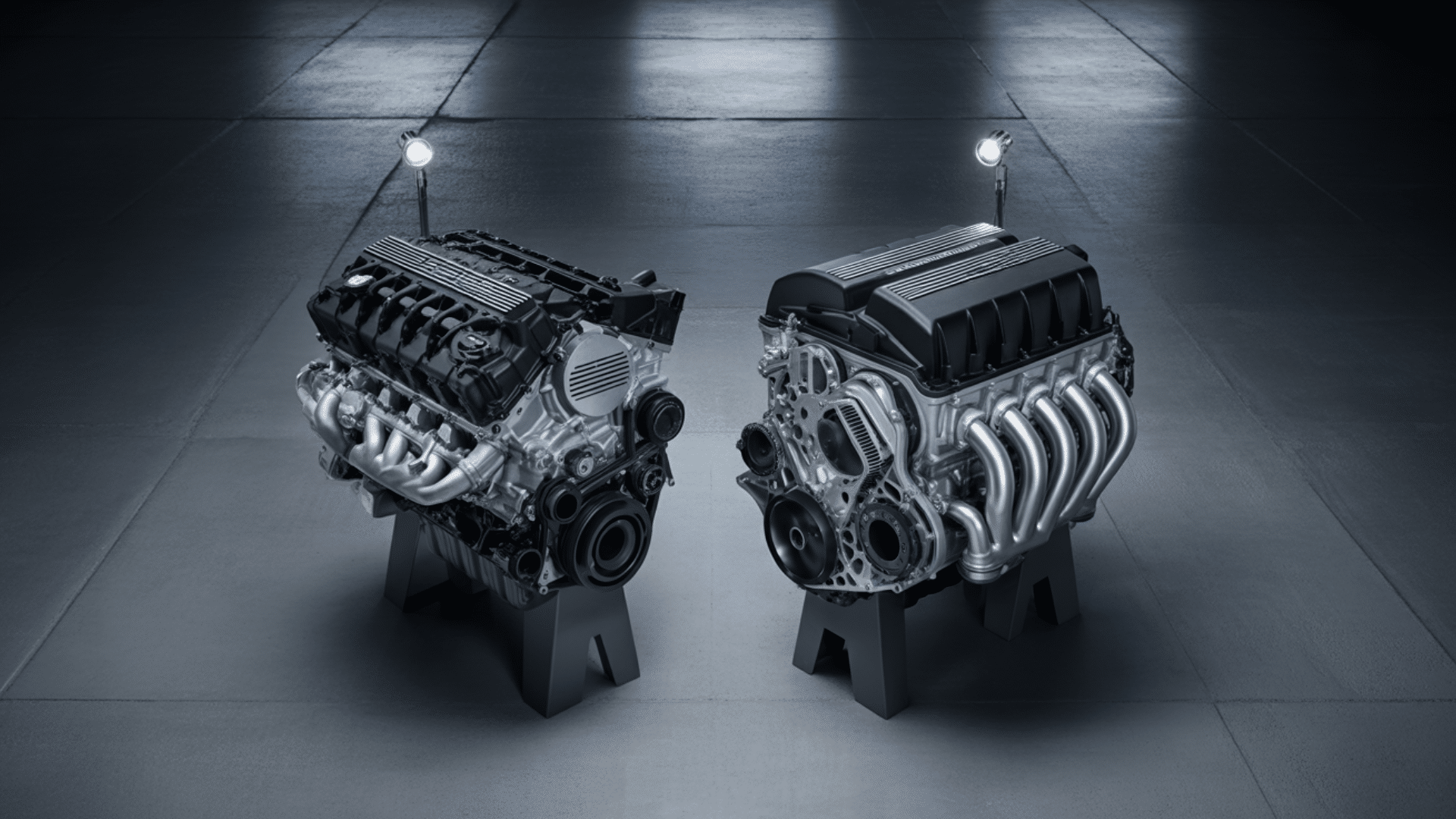
What works great for one person might not fit another’s needs at all. That’s why it’s so important to consider both the pros and cons of each option.
HEMI V8
Pros
- Lower Purchase Price: Gas engines like the HEMI V8 typically cost less upfront than diesel options, making them more affordable for buyers on a budget.
- Simpler Design and Repairs: The HEMI’s design is less complex than diesel engines, which means fewer parts that can fail and lower maintenance costs over time.
- Easy-to-Find Parts: Replacement parts are widely available and generally less expensive, making repairs more convenient and quicker.
- No DEF or Emissions Gear: Unlike diesel engines, the HEMI doesn’t require diesel exhaust fluid (DEF) or advanced emissions systems, reducing the hassle of extra upkeep.
- Mechanic-Friendly: Most mechanics are familiar with V8 gas engines, so finding someone to service or repair your vehicle is rarely a problem.
- Good Resale Value: While not as high as diesel, well-maintained HEMI trucks still hold their value relatively well in the used market.
Cons
- Lower Fuel Efficiency: The HEMI V8 burns more fuel, especially under load, which can make it more expensive to operate daily compared to diesel.
- Lower Towing Capacity: Although it’s strong, it doesn’t match the torque or hauling capabilities of a diesel engine, making it less ideal for very heavy-duty towing.
- Less Torque: The lower torque output compared to diesel engines means it may struggle slightly more when towing extremely heavy loads.
- Lower Cold-Weather Efficiency: Gas engines can be less efficient in extremely cold climates, though they generally start more easily than diesel.
- Higher Long-Term Fuel Costs: Over time, the higher fuel consumption may lead to greater total cost of ownership despite the lower purchase price.
Cummins Diesel
Pros
- Better Fuel Economy Over Time: Diesel engines are known for superior fuel efficiency, especially under load or during long highway drives. This leads to lower fuel costs over the truck’s lifetime.
- Outstanding Torque for Towing: The Cummins diesel engine produces massive torque, which makes it ideal for hauling trailers, boats, or heavy equipment with ease.
- Long-Term Durability: With proper maintenance, diesel engines often outlast gas engines, making them a great long-term investment.
- Excellent Resale Value: Diesel trucks tend to retain their value well, especially with the Cummins name attached. Buyers seek them out for their longevity and towing strength.
- Ideal for Heavy Loads: If you regularly tow heavy trailers or work in construction or farming, the diesel engine is better suited to constant high-load demands.
Cons
- Higher Upfront Cost: Diesel trucks are more expensive to buy new, which can be a barrier for some buyers.
- Emissions and DEF Maintenance: You’ll need to regularly refill DEF (Diesel Exhaust Fluid) and maintain the emissions system, which can add to operating costs.
- Cold Weather Starting Issues: In very cold climates, diesel engines may require a block heater or extra time to start, especially when not plugged in.
- More Complex Repairs: Diesel engines are more complicated, and repairs tend to cost more and may require specialized service.
- Less Convenient for Light Use: For drivers who don’t tow frequently or use the truck for heavy loads, a diesel may be more engine than necessary.
By looking at the full picture, you’ll be able to make the best choice. Don’t get caught up in power alone. Think about how you’ll really use the truck every day. That’s what matters most.
Engine Performance by RAM 2500 Trim Levels
Different RAM 2500 trims give each engine a unique purpose. Some trims focus on raw power and towing.
Others lean more into comfort and ride quality. The engine you choose can feel very different depending on the trim you pick. The following is how it all breaks down:
| Trim Level | HEMI V8 Performance | Cummins Diesel Performance |
|---|---|---|
| Tradesman | Great for daily work and lighter towing. Lower cost, fewer extras, simple and efficient. | Strong towing machine. Best for pulling heavy loads on a budget-focused work truck. |
| Power Wagon | Only engine option. Built for off-road use. Quick throttle, no turbo lag, better at elevation. | Not available on Power Wagon due to design focus on off-road, not towing. |
| Laramie | Adds comfort without losing work strength. Lower price lets you add more features. | Pairs well with premium feel. Smooth power and better highway drive. |
| Limited | Offers luxury features at a higher cost. V8 gives room in the budget for extras. | Diesel adds towing power and smoothness to a high-end experience. |
Your trim level choice shapes how each engine performs. Take your time and consider how you’ll use the truck. The right mix of trim and engine can make a big difference every day.
Future Engine Updates and Alternatives of RAM
RAM is moving forward with new engine technologies, but if you need a reliable truck today, the HEMI V8 and Cummins Diesel are still your safest bets.
- Mild-hybrid systems (for better fuel efficiency)
- All-electric RAM heavy-duty models
- Plug-in hybrid truck versions
- Hydrogen fuel cell research and testing
- Upgraded emissions systems for gas and diesel engines
- Expanded use of aluminum and lightweight materials
- Improved transmission tech for better towing control
- More refined engine tuning for smoother highway driving
- Advanced driver-assist tools tied to engine performance
- Battery tech growth for electric truck towing potential
Conclusion
Picking the right engine for your RAM 2500 means being honest with yourself. Don’t just think about what sounds cool. Think about what you’ll actually do with the truck.
If you’re always towing or carrying heavy stuff, the Cummins diesel is the smarter choice.
It costs more at first, but it gives better fuel economy and holds value longer. It’s built for hard work and shows it.
If you want to spend less upfront and keep repairs simple, the HEMI V8 is a great option. It’s strong enough for most jobs and cheaper to fix over time.
Look beyond just power. Think about how much fuel you’ll use, what parts cost, and how much the truck will sell for later.
In the end, both engines can handle serious work. Pick the one that fits your daily life, and you’ll be glad you did.
Do you have any thoughts and suggestions you would like to share? I would love to hear them in the comments section!


